Healthcare workers picket across Providence for safe staffing, fair wages, and union representation
"We need to stop treating women, particularly Black and brown workers, less than. They are the backbone of healthcare in this state. And they deserve to be recognized as such, not as an afterthought."
Providence Community Health Centers (PCHC) employees held an informational picket today at six locations across the city to demand their employer improve staffing, increase wages, and put an end to anti-union treatment.
PCHC’s Health Center Associates (HCAs) have been seeing a drastic increase in workload since a hiring freeze in early 2023. As a result of short staffing, patients have experienced rescheduled or moved appointments due to a lack of staff and providers. Management has refused to consider wage increases for frontline staff, despite assurances during 2022 contract negotiations. In addition, PCHC has committed Unfair Labor Practices by initiating unilateral changes that affect workers’ schedules, overtime, and wages, along with anti-union tactics to deny access to union representation. Management has unilaterally implemented a time and attendance policy that disciplines workers for absences related to COVID-19. Despite PCHC´s emphasis on dignity and respect as its core values, workers overwhelmingly feel their concerns and issues are not addressed.
“During our last contract negotiations, we spoke with management about upgrading the Medical Assistant job description and pay grade to reflect the position’s additional responsibilities,” said Teresa Peixoto, Health Care Associate and Patient Service Representative in a statement. “Since then, management has refused to address this issue and eventually flat-out told us they changed their mind. What’s more, when staff call out sick with COVID or flu symptoms, they don’t have sick time to cover them and when they return they are disciplined. We take the quality of our care seriously, if caregivers are not given respect and responsible support to do our work, patient care suffers.”
“In labor-management meetings, PCHC has, for this entire year, ignored our issues. We had a chapter meeting in the spring to talk about a time and attendance policy that disciplines our members for getting COVID-19, and we didn't like that,” said Jesse Martin, SEIU Rhode Island Executive Vice President, addressing workers on the picket line. “As part of our contract in 2022, we said that we wanted to look at our job descriptions and our workload, which over the years has continued to grow but doesn't match our paycheck. We had a promise from this employer in our contract that they would sit down and have a discussion with us about that workload and about our pay. That discussion didn't happen. The answer to our proposal, which was detailed and involved members and delegates from across PCHC was answered two months later with a simple single word. 'No.'
“We are the backbone of healthcare for the City of Providence. Federally qualified clinics are the backbone of the healthcare for people on Medicaid, who are working people. If we don't have the resources to deliver good care, that means our communities don't have it. And that's a shame.”
I spoke to Martin just before he addressed the workers.
Jesse Martin: Most of our members are bilingual or trilingual. So when patients come in speaking Portuguese, Spanish, or English, they have a competent healthcare provider who can help them through that entire doctor's appointment. Can you imagine being in a doctor's appointment and not knowing what the doctor is saying?
We have members from a bunch of smaller clinics here since we're only picketing outside six of them. Some of the clinics are small - small little community access clinics that people go in and out of fairly regularly. For the last year, we've been meeting with management to address several issues. A majority of our female members, over 300, don't have a safe space to be able to pump when they come back to work after delivering a baby. There's one clinic that has an appropriate space - out of 13.
Steve Ahlquist: So they use a restroom?
Jesse Martin: They use the restroom, a closet, or some other inappropriate space. We have a predominantly female workforce. We need to provide a workspace that's conducive to who they are and what they're going through in their world.
Secondly, we've had chronic issues with dignity and respect from healthcare center directors toward our frontline membership. When we brought those issues of disrespect to management, we were ignored.
Steve Ahlquist: What kind of issues are we talking about?
Jesse Martin: Forcing people to work through their breaks. Limiting access to bathrooms, talking down to people, being disrespectful to people, and a lack of communication and education about changes in company policy.
In 2020, we settled the collective bargaining agreement that allowed us to sit down and talk about the workload that the majority of our members do. A majority of our members are medical assistants and HCAs, and they provide the backbone of the experience to patients. In the last several years, but particularly in 2023, more work has been put on them, more documentation has been required, and they have more patients in their pods. In our contract negotiations, the employer agreed to have a discussion with us about interim wage increases for that group of workers. There was no discussion. When we presented to them a proposal and the reasons for that proposal - about the expansion of work - we got an email back two months later saying, “No.” That's not a discussion. That's a mandate.
Steve Ahlquist: Is that a contract violation?
Jesse Martin: I think it is. In addition to that, over the last month, PCHC made other unilateral changes in our members' working conditions and has also committed unfair labor practices - which are violations of federal laws against monitoring and surveilling union activity.
We've been trying to engage with this employer for the last nine months on these issues and their response is to try to limit our members' access to union representation, say "no" when we're supposed to have a meeting to discuss these issues, and fail to respond to our most pertinent items.
So our members are red hot, they're mad, they're frustrated, and in particular they're concerned that if this system doesn't change, this behavior will continue to impact the quality of care that patients receive.
Today our clinics are open late to serve the population. They open at noon, they work till eight o'clock at night. Not being able to sit down and eat dinner means that our members are not as focused and their ability to provide quality service is not there. That's an ongoing concern.
Steve Ahlquist: Can you speak to the idea that this is happening in part because we're talking about women of color?
Jesse Martin: Absolutely. 99.9% of our membership at PCHC are women and the overwhelming majority of those members are Black, brown, and white working-class people. They live in the communities they serve. If they live in poverty, while continuing to care for other people in poverty, the cycle of poverty will continue unabated. We need to lift healthcare workers out of poverty so they don't come to work worried about how to pay the electric bill so that they can be there with full mind, body, and spirit to care for patients when they need us the most. You can't do that if you're worried about deciding on buying Christmas gifts or paying the light bill.
Then add more and more and more work, more responsibilities. There's a great concern that pay doesn't equal the amount of work they are asked to do. And to your point, we know that in healthcare, which is predominantly women, Black, brown, and white working-class women, they are undervalued by our society in their pay and benefits. We see that in nursing homes. We see that in hospitals. We see that in clinics. We need to stop treating women, particularly Black and brown workers, less than. They are the backbone of healthcare in this state. And they deserve to be recognized as such, not as an afterthought.
Steve Ahlquist: We talk a lot about the care economy, but if that economy stops before it reaches the working people doing the work, it's not an economy. It's just an investment opportunity to be exploited.
Jesse Martin: Exactly. The other piece that's frustrating is that to operate a clinic like PCHC, you're talking about tens of millions of dollars in public money, both federal and other grant money that comes in to provide this quality of care. We need to make sure, even in a nonprofit, that we maintain some morality about how we spend our public dollars. We need to ensure that people caring for people are not living in poverty. How else are you supposed to stop that cycle?
Established in 1968, PCHC, the city's only Federally Qualified Health Center (FQHC), is the largest primary health care provider in Providence, providing primary health care services to more than 80,000 residents of Providence and its surrounding areas. Their services include Family Practice, Internal Medicine, Pediatrics, Obstetrics, Gynecology, Behavioral Health, Optometry, Dental Care and Express Care. Federally qualified health centers form the safety net for primary care across the country and are required to serve everyone regardless of a patient's ability to pay.
SEIU 1199NE represents over 300 front-line staff and support staff across the system of clinics and specialty clinics that provide primary care and other health care to people in Providence. The largest classification of union workers is Health Center Associates (over 55%).
District 1199 SEIU New England represents 29,000 health care and service workers in Connecticut, Rhode Island, and Southeastern Massachusetts. In Rhode Island, 1199 SEIU NE represents over 4,000 members. 1199 SEIU NE is affiliated with the Service Employees International Union (SEIU) – a union of over 2 million members across the United States, Puerto Rico, and Canada. SEIU has been a national leader in pushing the growing Fight for $15 and a Union movement.

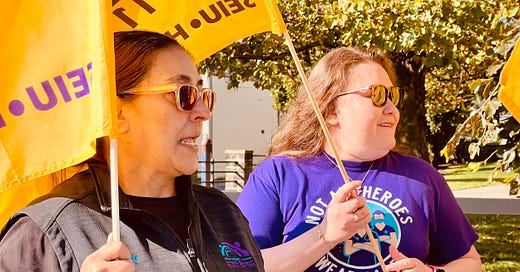



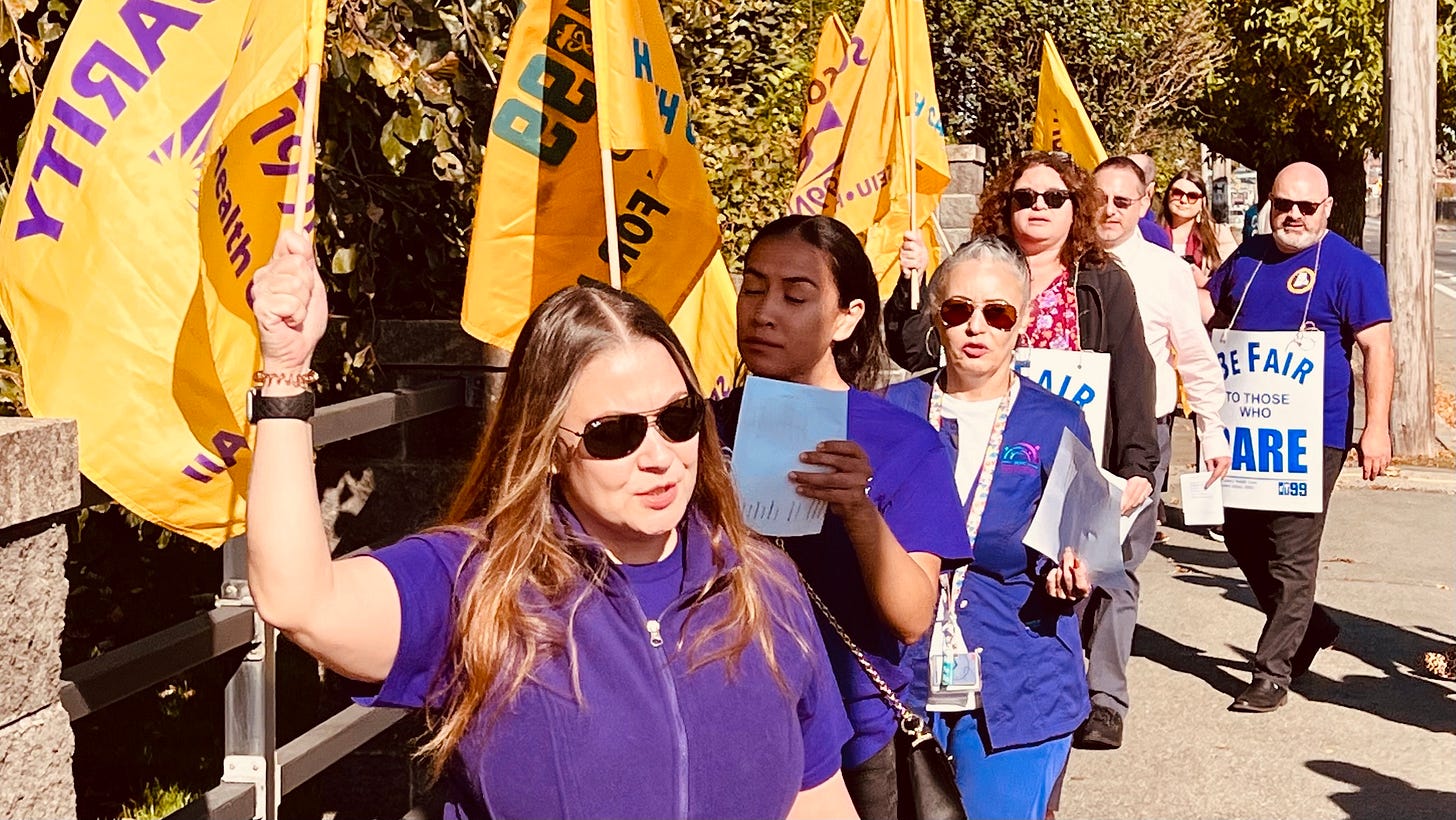
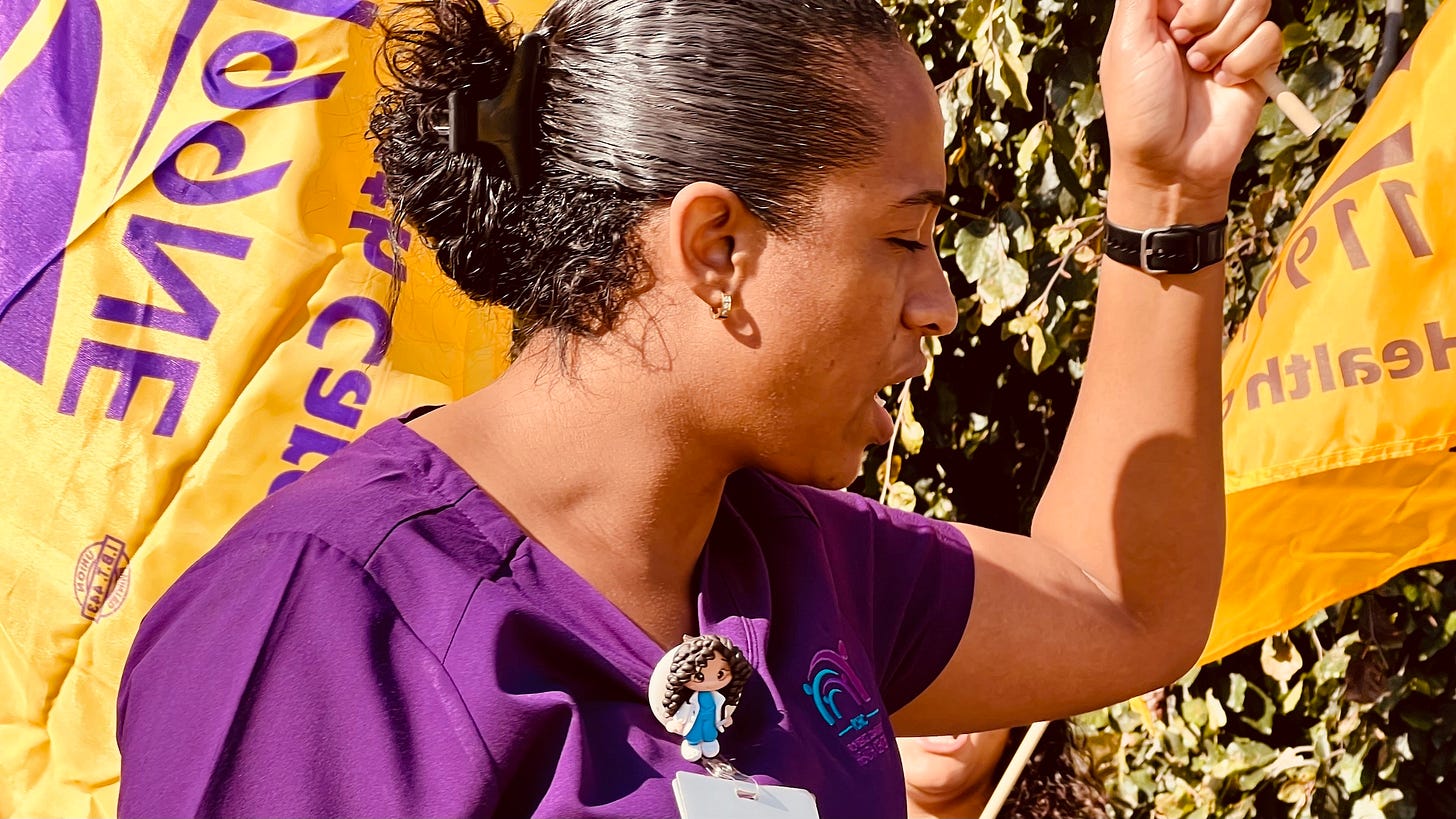
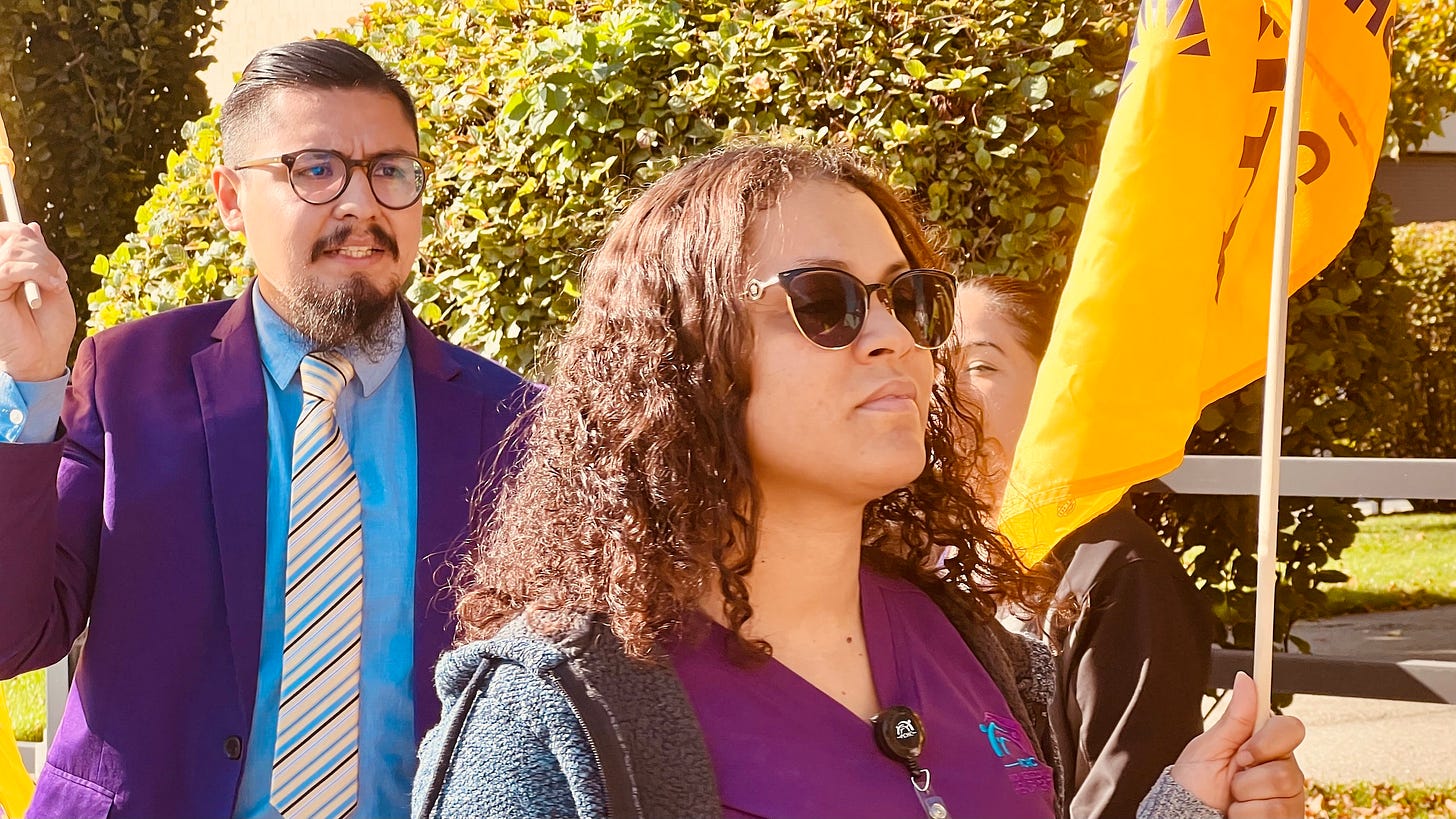
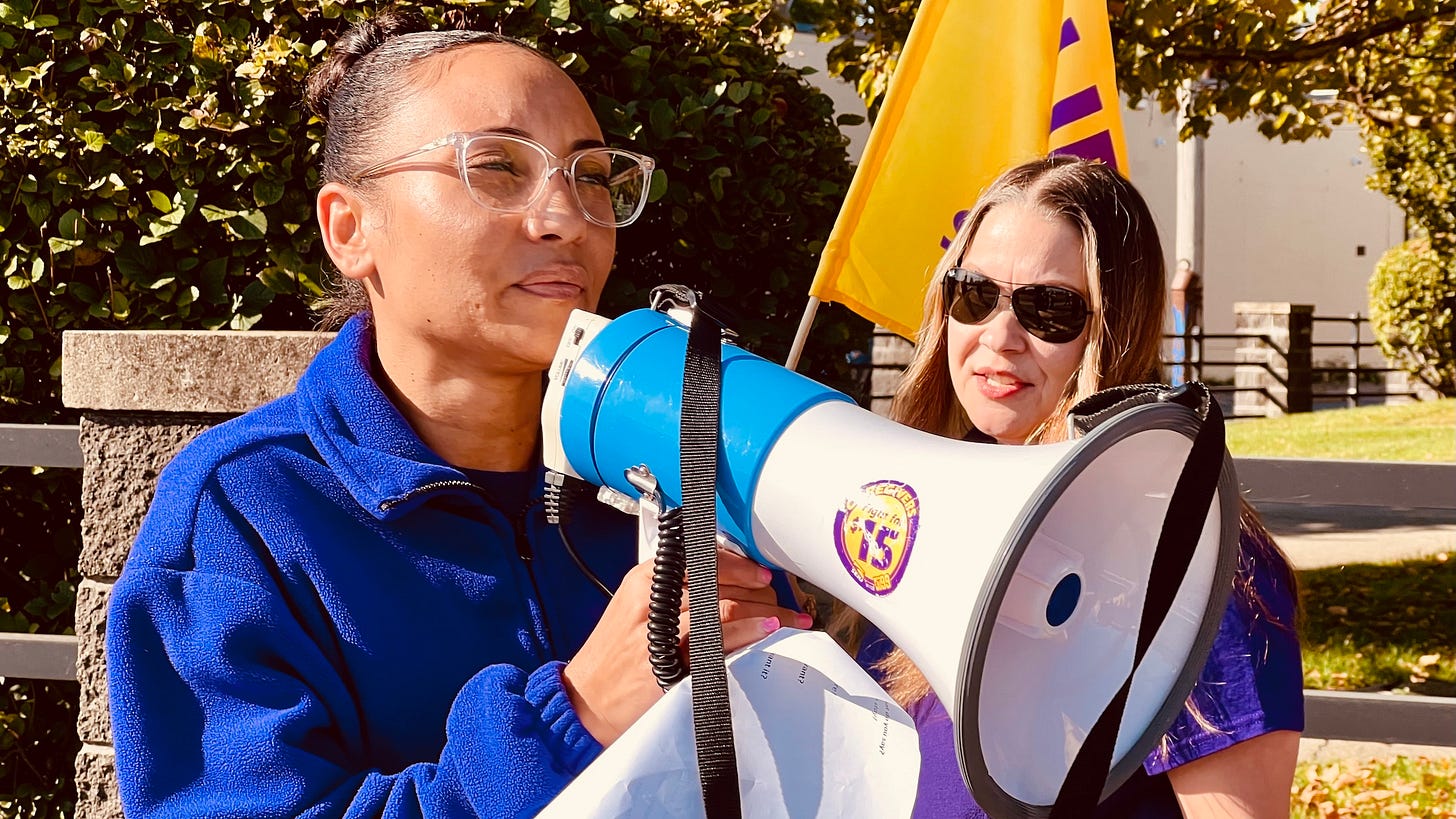
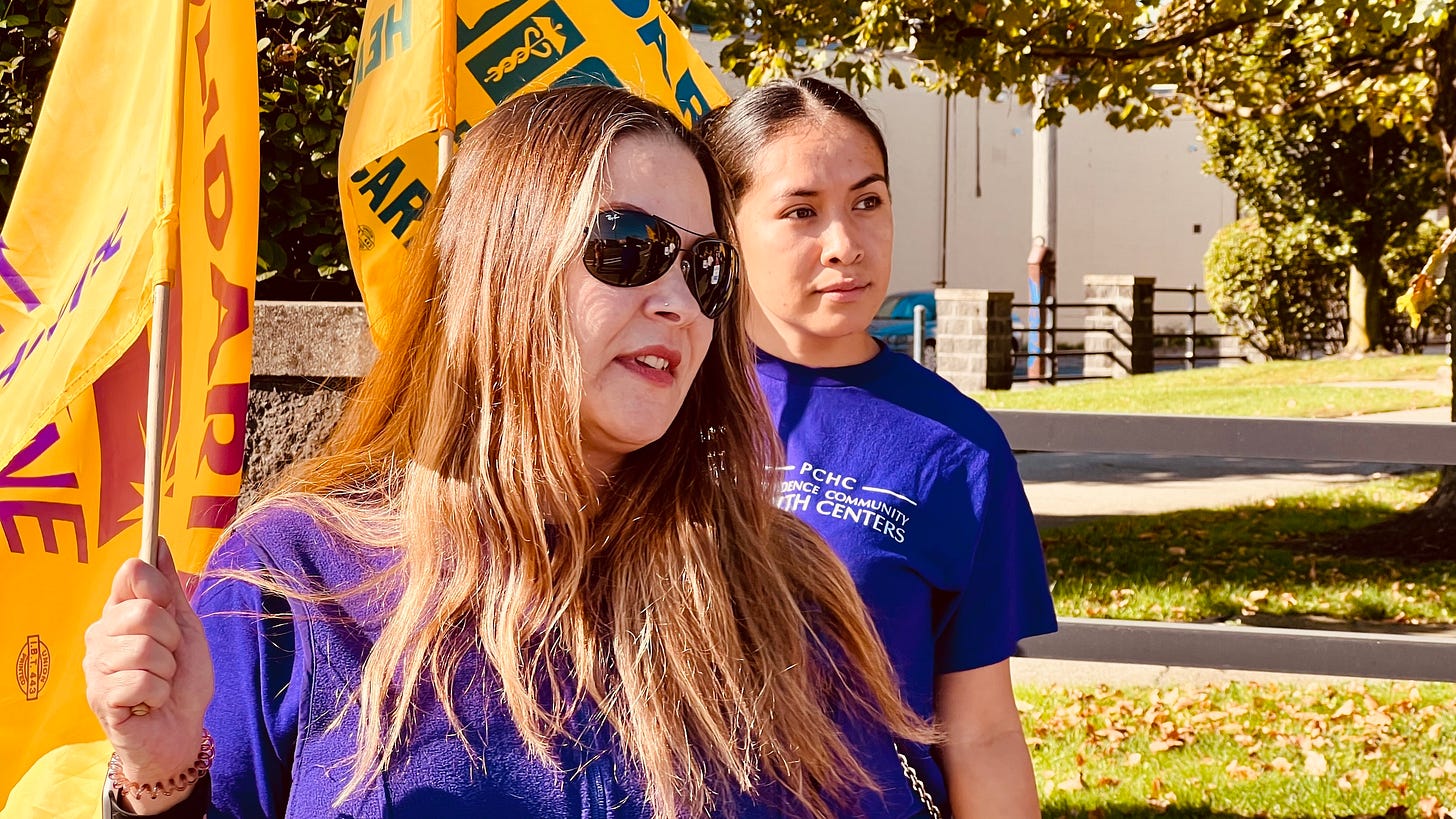


I have been studying medical economics since Miriam hospital over ran my neighborhood. All of the healthcare investment goes into the parts of the system that make the richest players richer. and we seriously underinvest in anything related to community and public health, and especially women workers and women's health. No wonder our longevity is going down.
important reporting. part of the problem is the grievous absence of investigative journalism in rhode island.